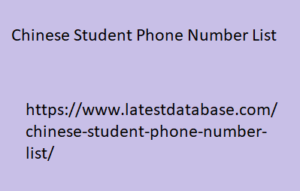Post by account_disabled on Mar 12, 2024 4:45:33 GMT
If you don't develop it quickly, trends will change." It seems that as long as you are a Japanese-style office worker, you will not be able to join the inner circle no matter how many years you have been in Silicon Valley. On the other hand, he taught me that if you act with a sense of speed, it is possible to get into the program in just a few weeks. A smart home that's not smart at all In Silicon Valley, active investment in IoT-related areas peaked in 2014. More than 60 companies have entered the smart home-related IoT business alone. Kikuchi: "However, each smart home appliance has developed a separate smart home app.
Each smart home appliance has a different compatible app , which is extremely inconvenient. It's a shame that it's not smart in that aspect." Investments related to smart homes have come to an end and have decreased considerably since 2017. Acquisition Chinese Student Phone Number List by corporate VC From 2014 to 2017, a trend emerged in which major corporate VCs acquired powerful startups one after another. Kikuchi: “For example, Nest was acquired by Google for 3.2 billion yen (approximately 350 billion yen).” Kikuchi: ``Nest is a company that releases smart thermostats (IoT devices that fully automatically adjust air conditioning in hotels and apartments), and Google analyzes room temperature control information from all over the and uses that data.

I came up with the idea of selling it to an electric power company." Rather than simply creating convenient IoT devices, the secret to a successful startup is to envision a business that can be considered beyond that. “AI” as a game changer As IoT-related investments settle down, VCs are said to be turning their attention to AI. Kikuchi: ``For example, students and professors at Stanford University are working on the development of using AI to control all the sensors and home appliances in the house.'' Kikuchi: "We're trying to make this possible by having AI learn the behavior patterns and heat maps of the owner of the house.
Each smart home appliance has a different compatible app , which is extremely inconvenient. It's a shame that it's not smart in that aspect." Investments related to smart homes have come to an end and have decreased considerably since 2017. Acquisition Chinese Student Phone Number List by corporate VC From 2014 to 2017, a trend emerged in which major corporate VCs acquired powerful startups one after another. Kikuchi: “For example, Nest was acquired by Google for 3.2 billion yen (approximately 350 billion yen).” Kikuchi: ``Nest is a company that releases smart thermostats (IoT devices that fully automatically adjust air conditioning in hotels and apartments), and Google analyzes room temperature control information from all over the and uses that data.

I came up with the idea of selling it to an electric power company." Rather than simply creating convenient IoT devices, the secret to a successful startup is to envision a business that can be considered beyond that. “AI” as a game changer As IoT-related investments settle down, VCs are said to be turning their attention to AI. Kikuchi: ``For example, students and professors at Stanford University are working on the development of using AI to control all the sensors and home appliances in the house.'' Kikuchi: "We're trying to make this possible by having AI learn the behavior patterns and heat maps of the owner of the house.
